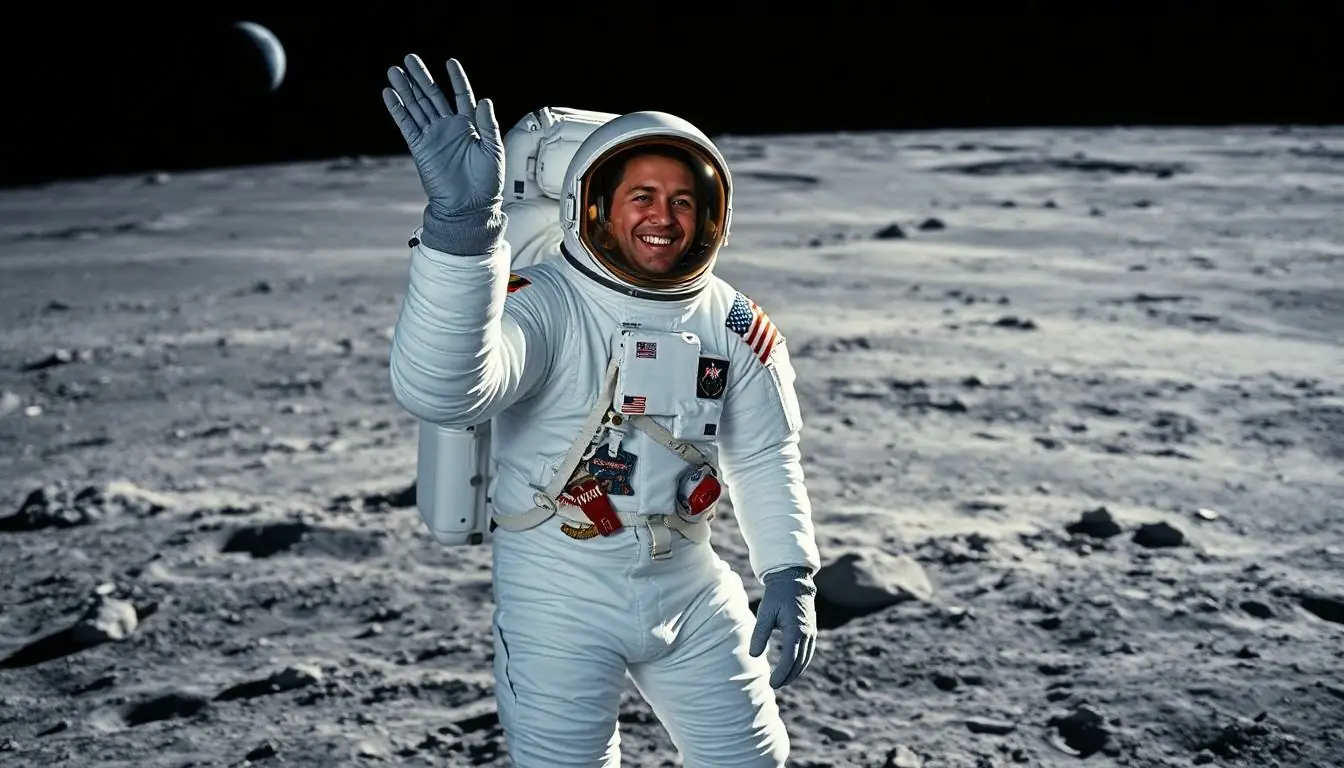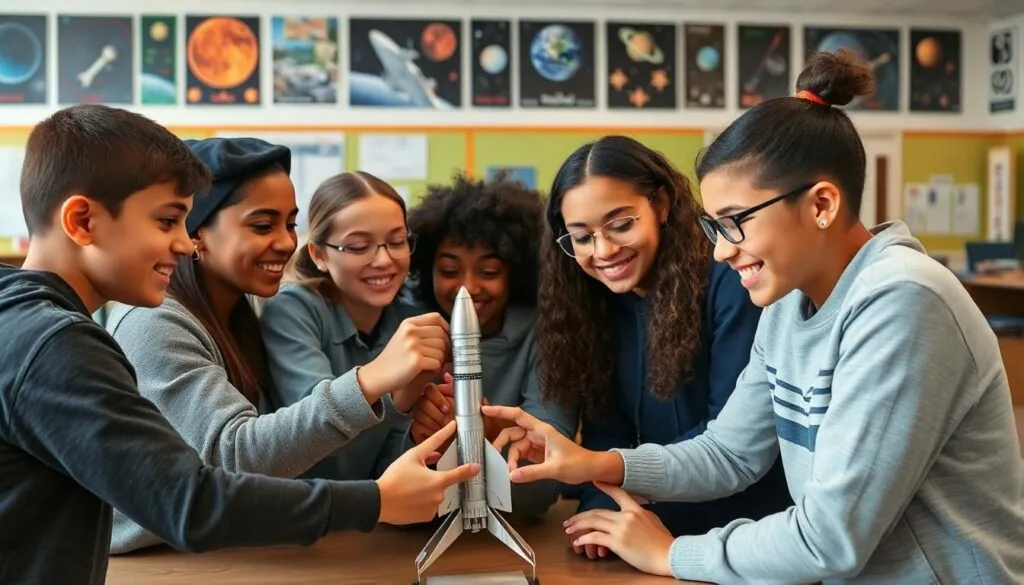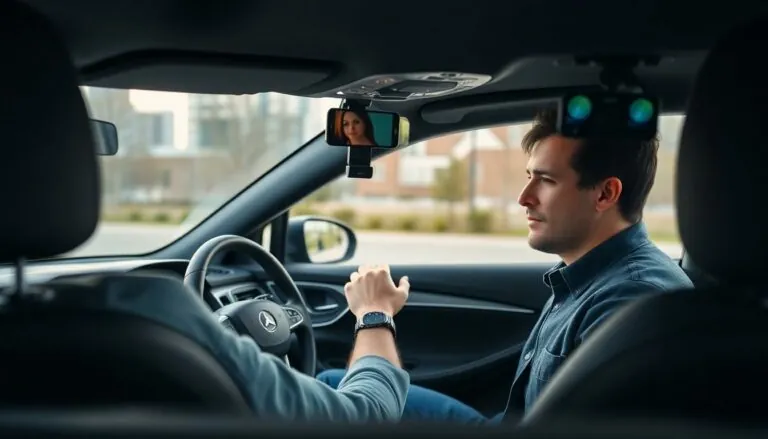Table of Contents
ToggleSpace: the final frontier, where dreams of astronauts and the occasional conspiracy theorist collide. But beyond the sci-fi movies and catchy memes lies a profound impact on the everyday lives of Americans. Space technology and exploration have not only launched humans into the cosmos but have also propelled innovations that touch daily routines, from the GPS guiding their road trips to the satellite imagery helping farmers grow crops.
As the U.S. reaches for the stars, it’s not just about rocket science. The benefits trickle down to Earth, enhancing healthcare, communication, and even entertainment. So, what’s the real effect of space exploration on the people of the United States? Buckle up as we explore how these cosmic endeavors have shaped lives, sparked imaginations, and maybe even made the world a little more connected—one satellite at a time.
Overview of Space Technology and Exploration
Space technology and exploration play a crucial role in shaping modern life in the United States. Innovations born from these fields enhance various aspects of daily living. For instance, Global Positioning System (GPS) technology provides accurate navigation services, fundamentally changing how individuals and businesses operate. Satellite imagery supports agriculture by helping farmers monitor crop health and optimize yields.
Many advancements in telecommunications trace their origins to space research. The development of communication satellites revolutionized connectivity. This progression allows people across the nation to access real-time information, engage in video conferencing, and utilize streaming services effortlessly.
In healthcare, space technology contributes to improved patient care. Techniques developed for space missions enhance medical imaging and telemedicine services. Technologies derived from space exploration also assist in monitoring environmental conditions, leading to better disaster response efforts.
Entertainment has experienced a transformation due to innovations in space technology. High-definition broadcasts and immersive gaming rely on advancements made possible through space exploration. NASA’s collaborative efforts with private companies spur creativity and innovation in this sector.
People benefit from educational programs associated with space missions. Initiatives inspire students to pursue careers in science, technology, engineering, and mathematics (STEM). Engaging curricula connect students with real-world applications of space research.
Interest in space exploration fosters a sense of unity among Americans. Shared excitement over missions encourages community involvement and participation in public events. This collective enthusiasm highlights the significance of space endeavors, emphasizing the potential for future discoveries.
Investment in space technology promises continued benefits for society. Economic growth often correlates with advancements in this field. Companies focused on space exploration contribute to job creation and technological development, offering new opportunities across various industries.
Historical Context

Space technology and exploration have played a crucial role in shaping American society. Significant events and developments in this field have left a lasting impact on culture, economy, and education.
The Space Race Era
The Cold War period marked intense competition between the United States and the Soviet Union in space exploration. In 1957, the launch of Sputnik by the Soviets ignited American determination to advance in science and technology. This endeavor led to the establishment of NASA in 1958, focusing on putting humans in space. Achievement of human spaceflight reached a peak in 1969 with the Apollo 11 mission, where astronauts landed on the Moon, sparking national pride. Public interest surged as the space race emphasized innovation, inspiring generations to pursue careers in STEM fields.
Key Milestones in Space Exploration
Several milestones have transformed American perspectives on technology and exploration. The launch of the Hubble Space Telescope in 1990 revolutionized astronomy by providing clarity on distant galaxies and phenomena. On the other hand, the Mars Rover missions expanded understanding of the Red Planet, stimulating curiosity about extraterrestrial life. Moreover, advancements in satellite technology have improved weather forecasting and environmental monitoring, significantly impacting daily life. These milestones contribute the sense of connectivity between scientific achievement and societal benefit, reinforcing the importance of continuous investment in space exploration.
Impact on Science and Education
Space technology and exploration significantly influence science and education across the United States. Innovations derived from space missions enhance learning experiences and inspire the next generation of scientists.
STEM Education Advancements
Programs related to space exploration create unique opportunities for students. Many educational outreach initiatives, such as NASA’s STEM engagement, provide resources and experiences directly tied to space missions. These initiatives encourage students to pursue careers in science, technology, engineering, and mathematics (STEM). By using real missions and research, educators motivate students to explore complex subjects. Hands-on projects, workshops, and competitions that mirror actual space challenges promote critical thinking, problem-solving, and collaboration skills essential for future careers.
Public Interest in Science
The excitement surrounding space missions ignites public interest in scientific fields. High-profile events, like the Mars Rover landings and the Hubble Space Telescope discoveries, capture the attention of millions. As astronauts venture into space, they share their experiences through various media, further sustaining public curiosity. This enthusiasm leads to increased enrollment in science classes and engagement in community science programs. Social media platforms amplify discussions about space, allowing individuals to share knowledge and passion for scientific endeavors.
Economic Effects
Space technology and exploration significantly influence the economy of the United States, creating jobs and fostering innovation across various sectors.
Job Creation and Industry Growth
Space exploration drives substantial job creation in multiple industries. The aerospace sector employs over 900,000 Americans directly. Additionally, indirect jobs related to logistics, construction, and manufacturing surge due to demand for satellite systems and spacecraft. Related industries, such as telecommunications and information technology, also expand as businesses leverage advancements from space research. The growth of private space companies, including SpaceX and Blue Origin, contributes further to employment opportunities. Economic studies consistently show that every dollar invested in space generates approximately $1.50 in economic return, highlighting the sector’s role in overall job growth.
Technological Innovations
Technological advancements from space exploration directly enhance economic productivity. Innovations in materials science, manufacturing processes, and engineering have roots in space missions. For instance, lightweight composites developed for spacecraft improve products in the automotive and aviation industries. Satellite technology drives advancements in telecommunications, bolstering connectivity for businesses and consumers alike. Furthermore, developments in data processing and analytics from space technologies enhance efficiency across sectors. These innovations create new markets and improve existing ones, demonstrating the robust link between space exploration and economic advancement in the United States.
Social and Cultural Influence
Space exploration profoundly impacts American society, shaping national identity and inspiring future generations.
Changes in National Identity
The Space Race spurred a unique sense of pride among Americans. Events like the Apollo 11 Moon landing fostered unity as citizens celebrated collective achievements in science and technology. This shared experience enhanced patriotism, influencing how people view their country’s role in global innovation. Recognition of national accomplishments in space exploration solidified the United States as a leader in scientific advancements. Over time, this identity has fostered a culture that values exploration and curiosity, which extends beyond the stars and into everyday lives. Achievements in space exploration remind Americans of their potential and ignite a passion for innovation.
Inspiration for Future Generations
Space missions provide powerful motivation for students to pursue careers in science, technology, engineering, and mathematics (STEM). NASA’s initiatives resonate with young minds, sparking interest through hands-on projects and competitive opportunities. Exposure to successful missions encourages children to envision themselves as future contributors to science and technology. Discussions about space ignite imagination, often transforming casual interest into concrete aspirations. This inspiration cultivates a generation ready to tackle complex challenges. As knowledge spreads through social media and community programs, the excitement surrounding space exploration shapes perspectives, pushing students toward ambitious goals. The vision of exploring other worlds continues to light pathways for innovation and discovery.
Space technology and exploration have profoundly shaped the lives of Americans. From enhancing daily conveniences like GPS to revolutionizing healthcare and communication, these advancements have become integral to modern living. The cultural and economic impacts are equally significant, fostering national pride and inspiring future generations to pursue careers in STEM.
As the U.S. continues to invest in space initiatives, the benefits will likely expand, driving innovation and creating new job opportunities. The excitement surrounding space missions not only captures public interest but also cultivates a culture of curiosity and exploration. This ongoing journey into the cosmos promises to enrich society in ways yet to be imagined, reinforcing the vital connection between space exploration and everyday life.




